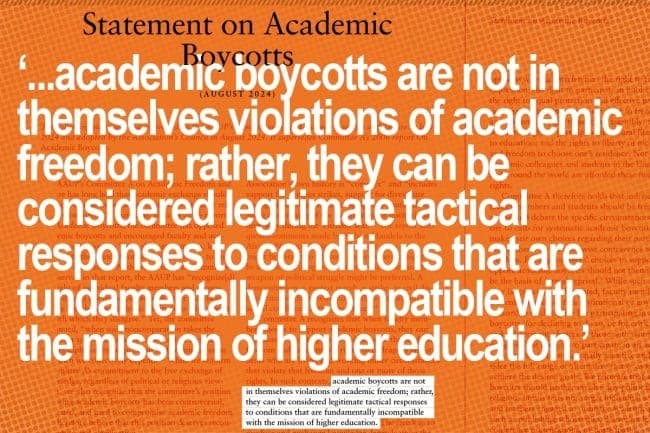AAUP's Policy Shifts on Boycotts and DEI Spark "Unhinged" Criticism from Education Analyst

Recent policy changes by the American Association of University Professors (AAUP) regarding academic boycotts, institutional neutrality, and diversity, equity, and inclusion (DEI) statements have drawn sharp criticism, with education policy analyst Neetu Arnold describing the organization as "really unhinged." The controversy centers on the AAUP's re-evaluation of long-standing principles, leading to concerns about its core mission of defending academic freedom.
In August 2024, the AAUP's Committee A on Academic Freedom and Tenure, and subsequently its Council, adopted a revised "Statement on Academic Boycotts," superseding its prior categorical opposition. This new stance allows individual faculty members to choose to support academic boycotts as "legitimate tactical responses" to conditions that violate academic freedom or fundamental rights, provided they do not involve political litmus tests or target individual scholars. Critics argue this represents a significant departure from the AAUP's historical commitment to the free exchange of ideas.
Further fueling the debate, the AAUP released a statement in January 2025 on "Institutional Neutrality," asserting that it is "neither a necessary condition for academic freedom nor categorically incompatible with it." This position reinterprets the organization's approach to universities taking stances on social and political issues. Additionally, the AAUP has affirmed that DEI criteria for faculty evaluation are "compatible with academic freedom" and can foster diverse academic environments, a move that has been met with resistance from those who view such statements as ideological litmus tests.
The shifts have prompted strong reactions from various commentators and organizations. Critics, including those from the Manhattan Institute where Neetu Arnold serves as a policy analyst, contend that the AAUP is abandoning its foundational principles of academic freedom and non-partisanship. They argue that these new policies risk politicizing academic institutions and undermining the very freedoms the AAUP was founded to protect.
The ongoing debate highlights a broader ideological struggle within higher education over the role of universities in social and political discourse, the interpretation of academic freedom, and the implementation of diversity initiatives. The AAUP's revised positions are seen by some as an evolution necessary to address contemporary challenges, while others view them as a capitulation to political pressures that threaten the integrity of academic institutions.